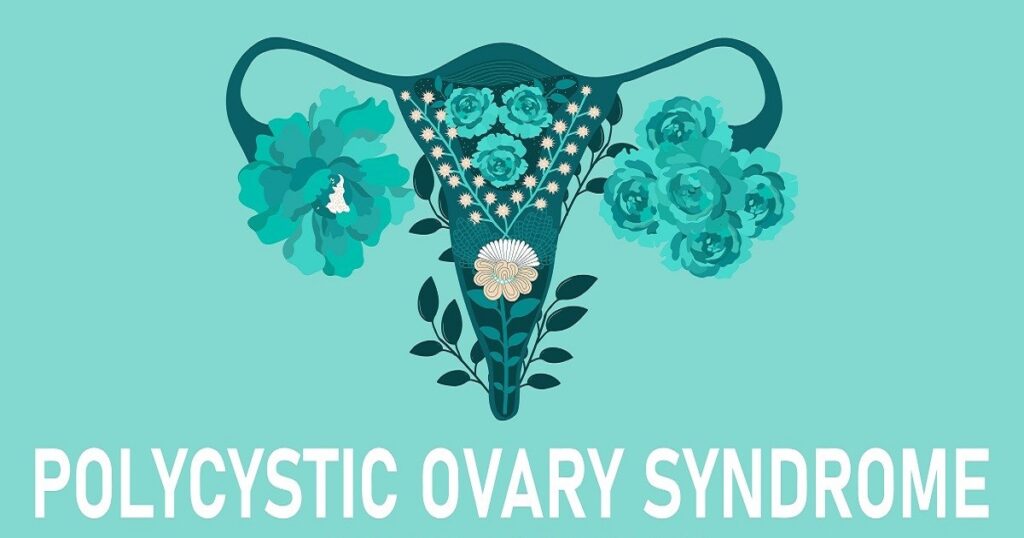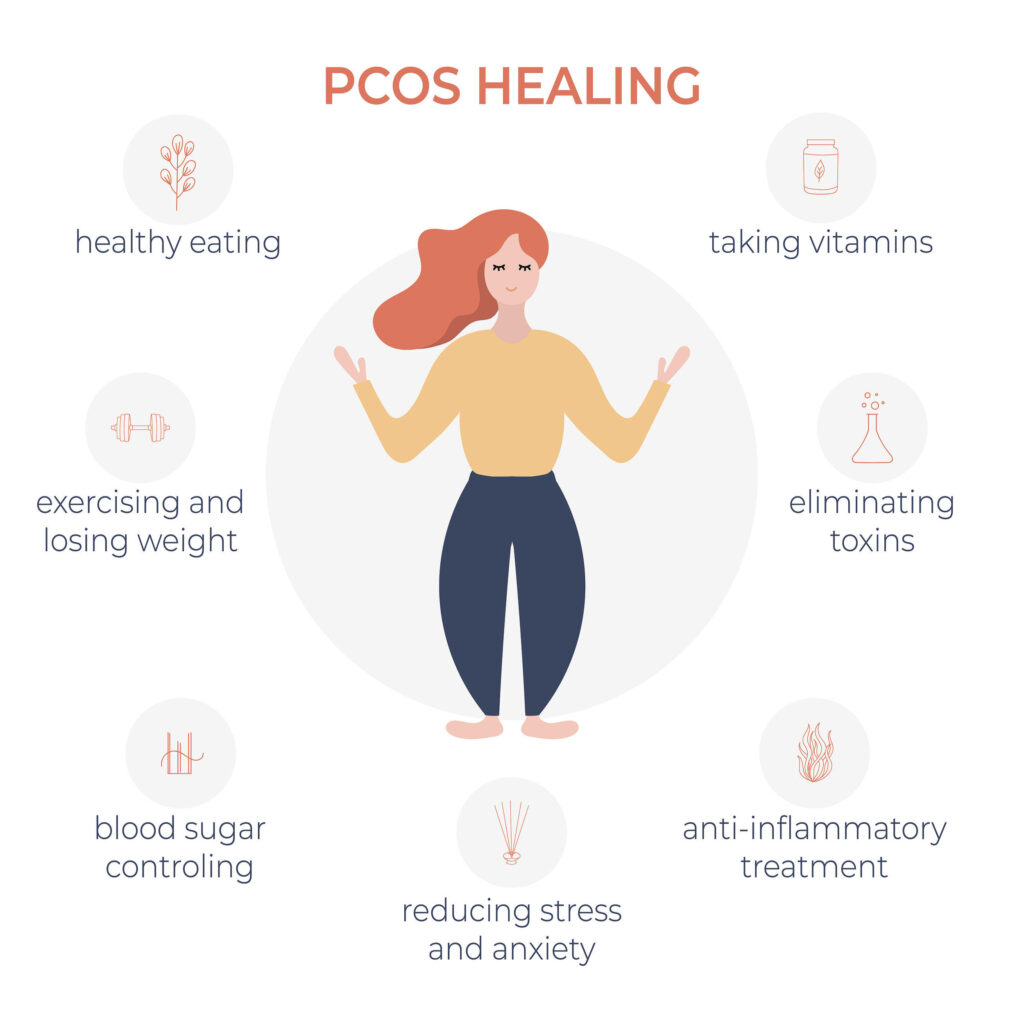
Polycystic ovary syndrome, commonly known as PCOS, affects millions of women around the world. It’s a condition that can disrupt not just hormones but also daily life. Many women find themselves grappling with unexplained symptoms and lingering questions about their health.
Understanding PCOS is essential for taking control of your well-being. Essential Guide to PCOS will walk you through crucial aspects of the condition—from identifying its common symptoms to exploring effective treatments and lifestyle changes. Whether you’re newly diagnosed or seeking more information, this essential guide to PCOS aims to empower you with knowledge and practical strategies for managing your health effectively. Let’s dive in to the Essential Guide to PCOS!
Essential Guide to PCOS
Polycystic ovary syndrome (PCOS) is a hormonal disorder that affects women during their reproductive years. It is characterized by a range of symptoms and complications stemming from an imbalance in hormones.
Women with PCOS may experience irregular menstrual cycles, excess hair growth, and acne. The name “polycystic” comes from the many small cysts that can form on the ovaries due to disrupted follicle development.
This condition not only impacts hormonal health but also influences metabolism. Women with PCOS might struggle with weight management and are at increased risk for conditions like diabetes and heart disease and this is an essential guide to PCOS.
Understanding PCOS goes beyond just recognizing its symptoms; it involves awareness of how this complex condition interacts with various aspects of health and well-being. Insights into lifestyle changes, treatments, and support systems play a vital role in navigating life with PCOS effectively.
Common Symptoms of PCOS

Polycystic Ovary Syndrome (PCOS) presents a variety of symptoms that can differ from person to person. One of the most common signs is irregular menstrual cycles. Women may experience missed periods or unusually heavy bleeding.
Another notable symptom is excessive hair growth, known as hirsutism. This often appears on the face, chest, and back, leading to emotional distress for many affected women.
Acne and oily skin are also prevalent among those with PCOS due to hormonal imbalances. Many struggle with weight gain or difficulty losing weight as well.
Additionally, thinning hair or male-pattern baldness can occur in some individuals facing this condition. Mood swings and anxiety may also surface because of these physical changes.
Recognizing these symptoms early can lead to prompt consultations with healthcare professionals for better management strategies and this is an essential guide to PCOS.
Causes and Risk Factors
Polycystic Ovary Syndrome (PCOS) is a complex condition with multiple underlying causes. Genetics play a significant role; if women in your family have PCOS, you might be more susceptible to developing it.
Hormonal imbalances also contribute. Elevated levels of androgens—often termed male hormones—can disrupt normal ovulation cycles. Insulin resistance is another common factor, where the body struggles to utilize insulin effectively, leading to weight gain and increased androgen production.
Environmental factors may also influence risk. Lifestyle choices such as diet and physical activity impact hormone levels and overall health. Stress can further exacerbate symptoms, creating a cycle that’s hard to break.
Understanding these causes helps in identifying who may be at risk for PCOS while empowering individuals to seek early intervention or adopt preventive measures tailored to their unique situations and this is an essential guide to PCOS.
Diagnosis and Testing for PCOS
Diagnosing PCOS can be a multifaceted process. Healthcare providers typically start with a thorough medical history and a physical exam. They look for specific symptoms that may indicate the condition.
Blood tests are commonly performed to measure hormone levels. These results help identify any imbalances, such as elevated androgen levels or insulin resistance, which are often linked to PCOS and this is an essential guide to PCOS.
An ultrasound may also be utilized to examine the ovaries. This imaging technique helps detect cysts and assess ovarian structure.
It’s essential to rule out other conditions that might mimic PCOS symptoms, like thyroid issues or adrenal disorders. By carefully evaluating these factors, healthcare professionals can provide an accurate diagnosis tailored to each individual’s needs.
Being proactive about testing is key for effective management of this complex condition. Early detection can lead to timely interventions and better health outcomes in the long run.
Medical Treatments for PCOS
Medical treatments for PCOS aim to alleviate symptoms and manage associated health risks. Hormonal contraceptives are often prescribed to regulate menstrual cycles and reduce acne or excess hair growth. These can be effective in balancing hormone levels and this is an essential guide to PCOS.
For those struggling with fertility, medications like Clomiphene citrate may help induce ovulation. This is crucial for women trying to conceive. Additionally, Metformin, a diabetes medication, can improve insulin sensitivity and support weight management.
Anti-androgens such as spironolactone are also common. They work by blocking male hormones that contribute to unwanted hair growth and other symptoms.
It’s essential for patients to have open discussions with their healthcare providers about these options. Each treatment plan should be tailored based on individual needs and medical history. Regular monitoring ensures the best outcomes while minimizing potential side effects related to the medications used and this is an essential guide to PCOS.
Lifestyle Changes to Manage PCOS

Making lifestyle changes can significantly impact the management of PCOS. Prioritizing a balanced diet is crucial. Focus on whole foods, rich in fiber, like fruits and vegetables. Incorporate lean proteins and healthy fats to keep insulin levels stable.
Regular exercise also plays a vital role in managing this condition. Aim for at least 30 minutes of moderate activity most days. This helps regulate weight and enhances mood.
Stress management techniques are equally important. Practices such as yoga, meditation, or deep-breathing exercises can help reduce stress hormones that may aggravate symptoms.
Getting adequate sleep should not be overlooked either. Quality rest supports hormonal balance and overall wellness.
Staying hydrated keeps your body functioning optimally and aids digestion. Small daily adjustments can lead to significant improvements over time and this is an essential guide to PCOS.
Alternative Therapies for PCOS Management
Alternative therapies can offer additional support for managing PCOS symptoms. Many women find value in practices like acupuncture, which may help regulate menstrual cycles and reduce stress.
Herbal remedies are also popular among those seeking natural treatments. Spearmint tea, for example, is known to potentially lower testosterone levels and improve hormonal balance.
Mindfulness techniques such as yoga or meditation contribute to overall well-being by addressing both physical and emotional health. These practices can alleviate anxiety often linked with living with PCOS.
Nutritional therapy focuses on whole foods that promote hormone regulation. Incorporating anti-inflammatory ingredients into your diet might yield positive results and this is an essential guide to PCOS.
Considering supplements—like omega-3 fatty acids or vitamin D—can also be beneficial for some individuals dealing with this condition. Exploring these options could enhance your journey towards better management of PCOS symptoms and this is an essential guide to PCOS.
Conclusion: Empowering Women with PCOS to Take Control of Their Health
Living with PCOS can be challenging, but knowledge is power. Understanding the symptoms and recognizing the underlying causes of this condition allows women to take proactive steps towards managing their health.
It’s essential for those affected by PCOS to work closely with healthcare providers. This collaboration enables personalized treatment plans that address individual needs and concerns.
Implementing lifestyle changes such as improved diet, regular exercise, and stress management techniques can significantly impact overall well-being. Additionally, exploring alternative therapies may provide additional support in managing symptoms and this is an essential guide to PCOS.
Women should feel empowered to seek out resources, connect with others facing similar challenges, and advocate for their health. With the right information and support network in place, navigating life with PCOS becomes more manageable and this is an essential guide to PCOS.
Taking control of your health journey means embracing a holistic approach—one that blends medical treatments with personal empowerment strategies. The road may not always be easy, but every step taken toward understanding and managing PCOS brings renewed hope for a healthier future.
Read up more about PCOS here. Visit QAWire for more health related news and guides.


